 W
WMalaysia is a multicultural and multiconfessional country, whose official religion is Islam. As of the 2010 Population and Housing Census, 61.3 percent of the population practices Islam; 19.8 percent Buddhism; 9.2 percent Christianity; 6.3 percent Hinduism; and 3.4 percent traditional Chinese religions. The remainder is accounted for by other faiths, including Animism, Folk religion, Sikhism, Baháʼí Faith and other belief systems. Numbers of self-described atheists in Malaysia are few; the state has come under criticism from human rights organisations for the government's discrimination against atheists, with some cabinet members saying that "the freedom of religion is not the freedom from religion".
 W
WBuddhism is the second largest religion in Malaysia, after Islam, with 19.8% of Malaysia's population being Buddhist although some estimates put that figure at 21.6% when combining estimates of numbers of Buddhists with figures for adherents of Chinese religions which incorporate elements of Buddhism. Buddhism in Malaysia is mainly practised by the ethnic Malaysian Chinese, but there are also Malaysian Siamese, Malaysian Sri Lankans and Burmese in Malaysia that practice Buddhism such as Ananda Krishnan and K. Sri Dhammananda and a sizeable population of Malaysian Indians.
 W
WChristianity in Malaysia is the third religion practised by 11.2 % of the population, two-thirds of the 2.951 million Christians live in East Malaysia. There is a small population in Peninsular Malaysia, and there are many who practice Christianity in Sabah and Sarawak. Sabah and Sarawak where they are together 45% of the Malaysian Christian population. The major Christian denominations in Malaysia include the Roman Catholics, Anglicans, Baptists, Brethren, non-denominational churches, independent Charismatic churches, Lutherans, Methodists, and Presbyterian.
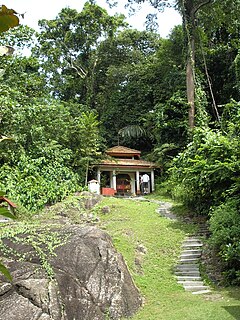 W
WThe religious belief of the Datuk Keramat worship can be found in Malaysia, Singapore and along the Strait of Malacca. It is a fusion of Malaysian folk religion, Sufism, and Chinese folk religion in Southeast Asia.
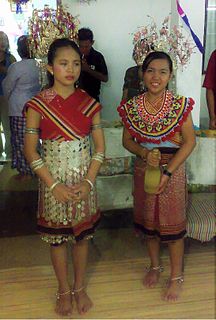 W
WGawai Dayak is an annual festival celebrated by the Dayak people in Sarawak, Malaysia and West Kalimantan, Indonesia on 1 and 2 June. It is a public holiday in Sarawak and is both a religious and a social occasion recognised since 1957.
 W
WHinduism is the fourth largest religion in Malaysia. About 1.78 million Malaysian residents are Hindus, according to 2010 Census of Malaysia. This is up from 1,380,400 in 2000.
 W
WIslam in Malaysia is represented by the Shafi‘i version of Sunni theology and jurisprudence, while defining Malaysia constitutionally a secular state. Islam was introduced by traders arriving from Arabia, China and the Indian subcontinent. It became firmly established in the 15th century. In the Constitution of Malaysia, Islam is granted as the "religion of the Federation" to symbolize its importance to Malaysian society. However, other religions can be practiced freely. Close to 7% adhere to smaller branches.
 W
WThe Malaysian Consultative Council of Buddhism, Christianity, Hinduism, Sikhism and Taoism is a non-profit interfaith organization in Malaysia. Initially formed in 1983 as the "Malaysian Consultative Council of Buddhism, Christianity, Hinduism and Sikhism", it is composed primarily of officials from the main non-Muslim faith communities in Malaysia and acts as a consultative and liaison body towards more open dialogue and co-operation. It prioritizes round-table dialogue as its principal means towards conflict resolution amongst all Malaysians, irrespective of creed, religion, race, culture, or gender. In 2006, Taoists were officially represented for the first time in the organization and the name was changed to the current form in their Annual General Meeting on 27 September of the same year. Their current vision is represented through the slogan "Many Faiths, One Nation."
 W
WMalaysian folk religion refers to the animistic and polytheistic beliefs and practices that are still held by many in the Islamic-majority country of Malaysia. Malaysian folk faith is practiced either openly or covertly depending on the type of rituals performed.
 W
WThe Memali Incident or code-named as Operasi Angkara and Operasi Hapus was a major incident that occurred in the remote village of Kampung Memali, Baling in the Malaysian state of Kedah on 19 November 1985.
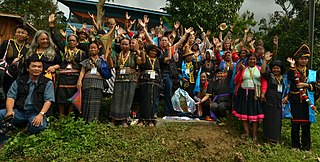 W
WMomolianism is a belief system of the Kadazan-Dusun people of Sabah.
 W
WNa Tuk Gong are local guardian spirits worshipped by overseas Chinese communities in Malaysia, Singapore and parts of Indonesia, especially Sumatra. An alternate more generic name for the cult is Datuk Gong, uniting Dato or Datuk from the local Malay word for 'grandfather', which is also used as an honorific title, and Kong or Gong from Chinese, also an honorific title. According to Taoist tradition, a Na Tuk Kong's could hold the official title 拿督尊王. It is important to note that Datuk Keramat, Datuk Gong and Na Tuk Kong all refer to the same deity. For the sake of clarity, the term Datuk, which is universally used to describe the spirit in Malaysia, will be used.
 W
WA pawang is a type of shaman from Malaysia and Indonesia. The pawang deals with magic involving weather, wild animals and spirits, but they may also be employed for cases of sorcery. Pawang are usually associated with mountains in contrast to the traditional healers who are most often linked to rivers.
 W
WA religious goods store, also known as a religious bookstore, religious gifts store or religious supplies shop, is a store specializing in supplying materials used in the practice of a particular religious tradition, such as Buddhism, Taoism, Chinese folk religion and Christianity among other religions.
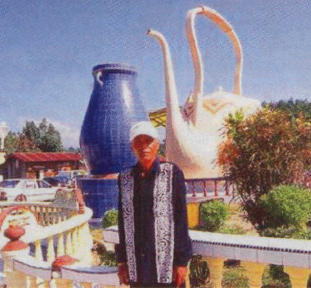 W
WSky Kingdom was a Malaysian religious commune and sect founded by Ariffin Mohammed, also known as Ayah Pin. The commune, based in Besut, Terengganu, was demolished by the government of Malaysia in August 2005. As of 2006, Ayah Pin was residing in exile in Narathiwat, Thailand, just over the border from Kelantan. Eighteen members of the Sky Kingdom commune remain at the mercy of the Malaysia's Higher Shariah Court, with 40 having received leniency upon renouncing the group.
 W
WThaipusam or Thaipoosam, is a festival celebrated by the Tamil Hindu community on the full moon in the Tamil month of Thai (January/February), usually coinciding with Pushya star, known as Poosam in Tamil or Pooyam in Malayalam. The festival is also observed among Keralites and is vernacularly called Thaipooyam.
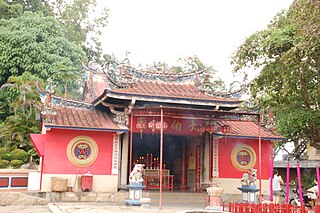 W
WTua Pek Kong. lit. "grand uncle") is one of the pantheon of Malaysian, Indonesian and Singaporean folk religions. Throughout Southeast Asia, Tua Pek Kong is referred as the "God of Prosperity", where he is thought to be an incarnation of the god "Fu" from the trio of "Fu Lu Shou" representing "Prosperity, Fortune and Longevity" or a sailor from Fujian who sacrificed himself for a fellow human.
 W
WThe Vajrayana Buddhist Council of Malaysia is a council or umbrella body consisting of member organizations which represents all Tibetan's Vajrayana Buddhism traditions in Malaysia. It also accepts individuals who are inclined towards Vajrayana Buddhism as associate members.